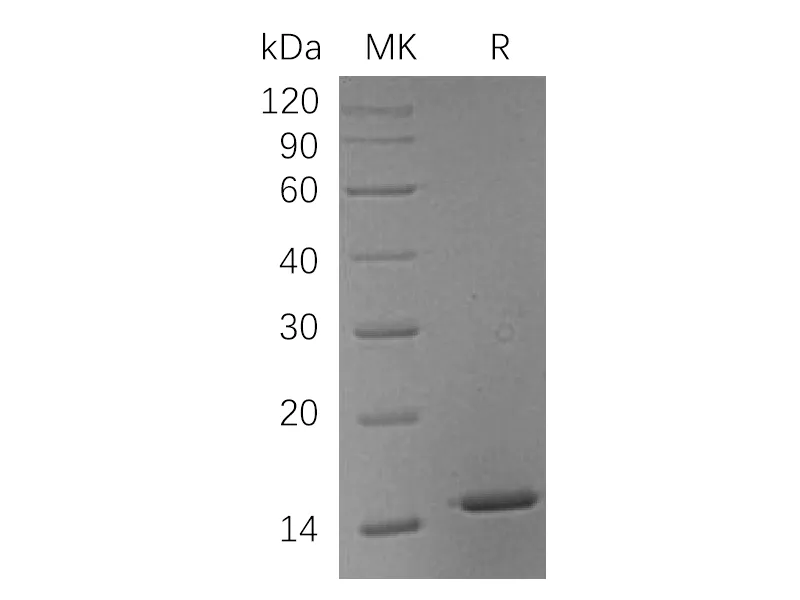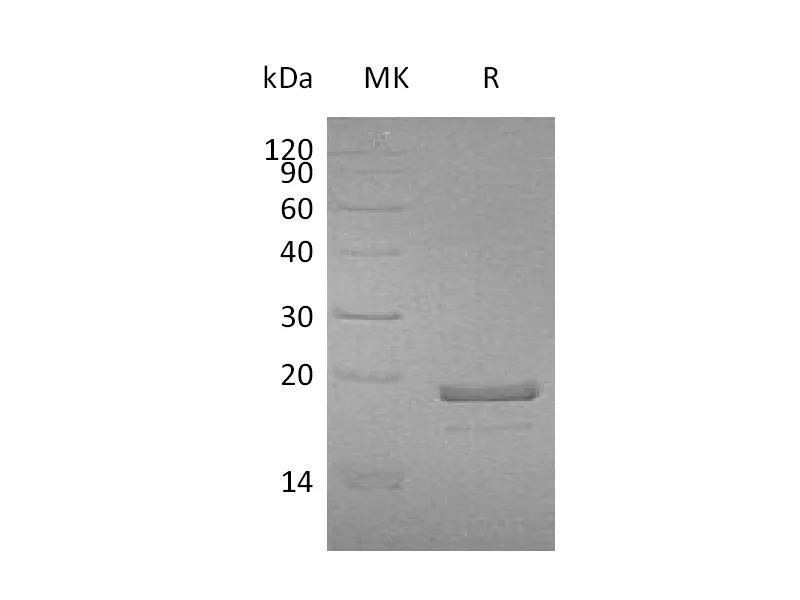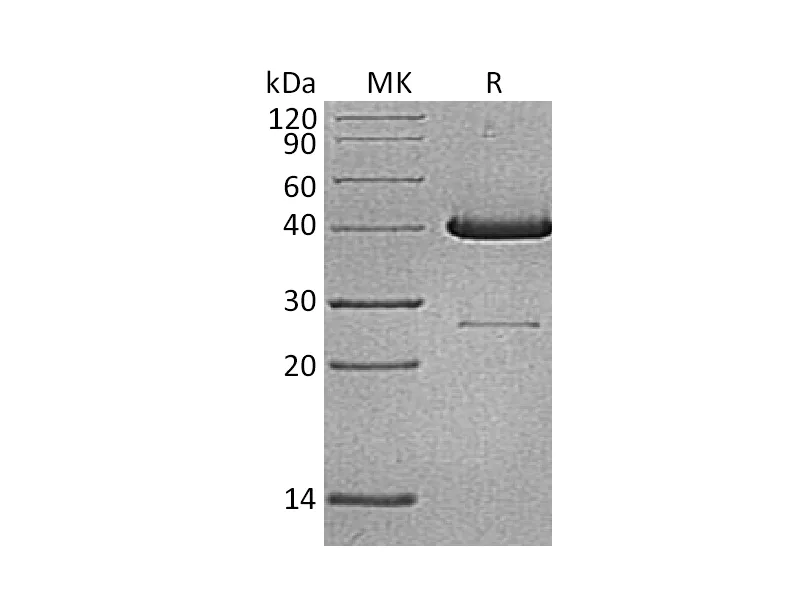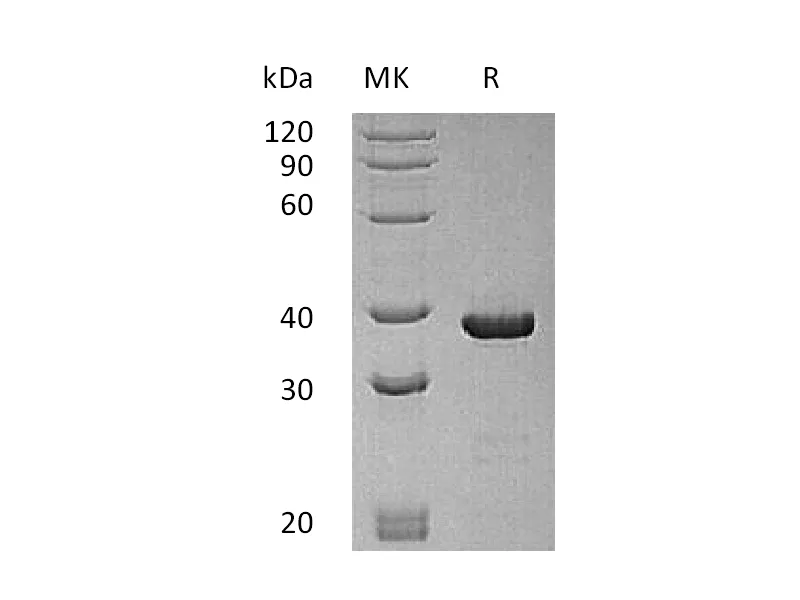| 产品名称 |
Recombinant Human LILRB4 (C-6His) |
| 英文名称 |
LILRB4/ILT3/CD85k |
| 纯度 |
Greater than 95% as determined by reducing SDS-PAGE |
| 内毒素 |
<1 EU/µg as determined by LAL test. |
| 蛋白构建 |
Recombinant Human Leukocyte Immunoglobulin-like Receptor Subfamily B Member 4 is produced by our Mammalian expression system and the target gene encoding Gln22-Glu259 is expressed with a 6His tag at the C-terminus. |
| Accession |
Q8NHJ6 |
| 表达宿主 |
Human Cells |
| 种属 |
Human |
| 预测分子量 |
27.1 KDa |
| 制剂 |
Lyophilized from a 0.2 μm filtered solution of 20 mM His-HCl, 15% Trehalose, 4% Mannitol, 0.05% Tween 80, pH6.0. |
| 运输方式 |
The product is shipped at ambient temperature.Upon receipt, store it immediately at the temperature listed below. |
| 稳定性&储存 |
Store at ≤-70°C, stable for 6 months after receipt.Store at ≤-70°C, stable for 3 months under sterile conditions after opening. Please minimize freeze-thaw cycles. |
| 复溶 |
Always centrifuge tubes before opening.Do not mix by vortex or pipetting.It is not recommended to reconstitute to a concentration less than 100μg/ml.Dissolve the lyophilized protein in distilled water.Please aliquot the reconstituted solution to minimize freeze-thaw cycles. |
| 分子别名 |
| Leukocyte immunoglobulin-like receptor subfamily B member 4; Mast cell surface glycoprotein Gp49B; CD85k; Lilrb4; Gp49b |
| 背景介绍 |
| Mouse Leukocyte Immunoglobulin-like Receptor Subfamily B Member 4 (LILRB4/CD85k/ILT3) is an approximately transmembrane glycoprotein that negatively regulates immune cell activation. Mouse LILRB4 consists of a 215 amino acid (aa) extracellular domain with two Ig-like domains, a 22 aa transmembrane segment, and a 75 aa cytoplasmic domain with 3 immunoreceptor tyrosine-based inhibitory motifs (ITIM). Within the ECD, mouse LILRB4 shares 45% and 77% aa sequence identity with human and rat LILRB4, respectively. Alternative splicing of mouse LILRB4 generates a potentially soluble isoform that lacks the transmembrane segment. LILRB4 is expressed on dendritic cells (DC), monocytes, macrophages, and vascular endothelial cells (EC). Ligation of LILRB4 triggers ITIM-mediated inhibition of cellactivating signaling, leading to enhanced immune tolerance and reduced allogeneic graft rejection. Soluble LILRB4 induces the differentiation of CD8+ T suppressor cells (Ts) that can inhibit the effector functions of CD4+ Th cells and CD8+ CTL. In turn, CD8+ Ts cells induce LILRB4 up-regulation and a tolerogenic phenotype in monocytes, DC, and EC. |
注意事项
本司产品仅用于科研,不用于临床诊断和治疗




